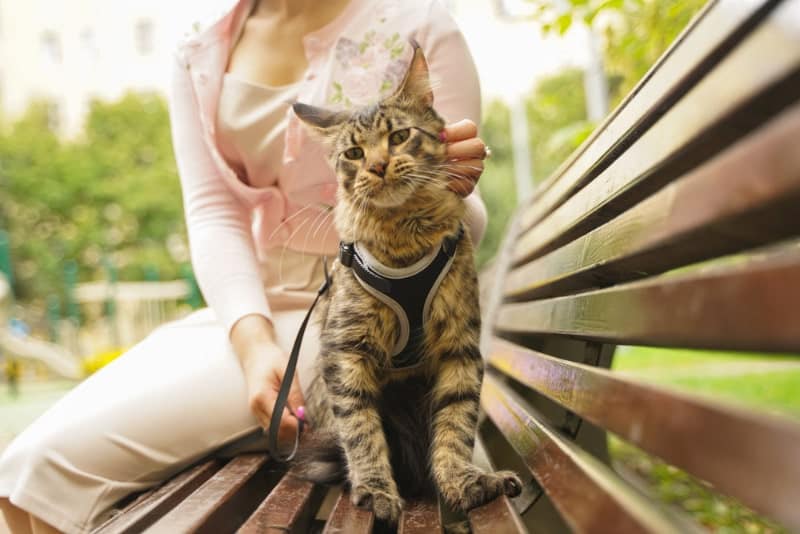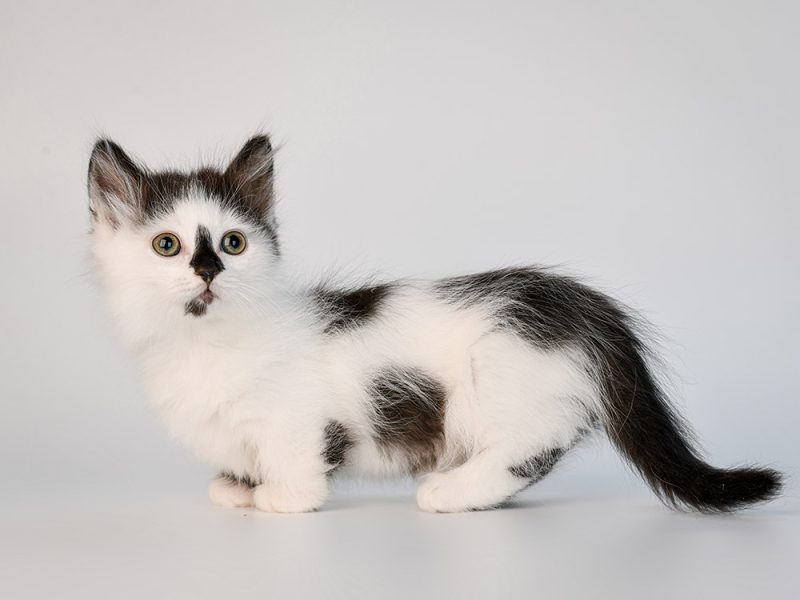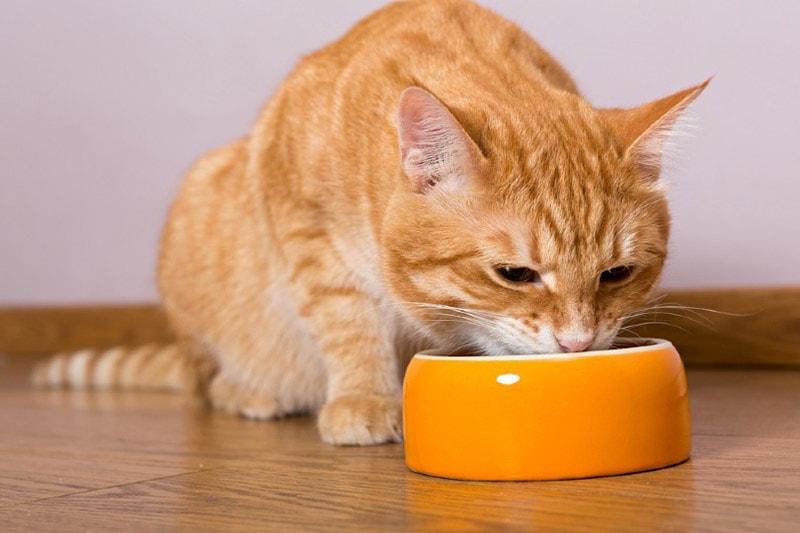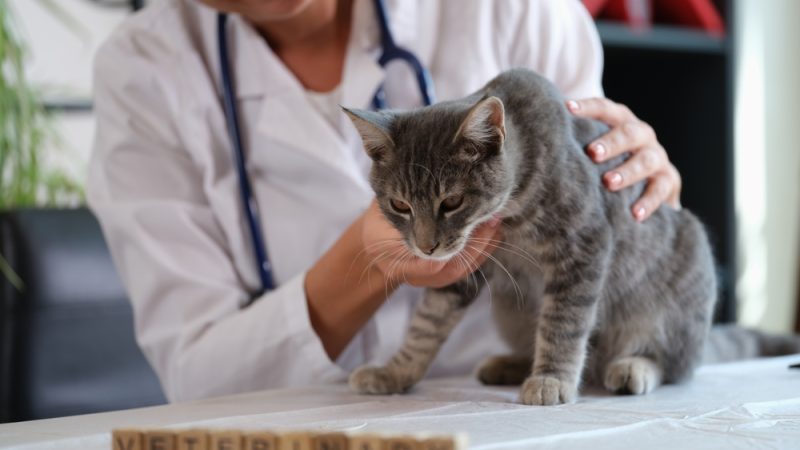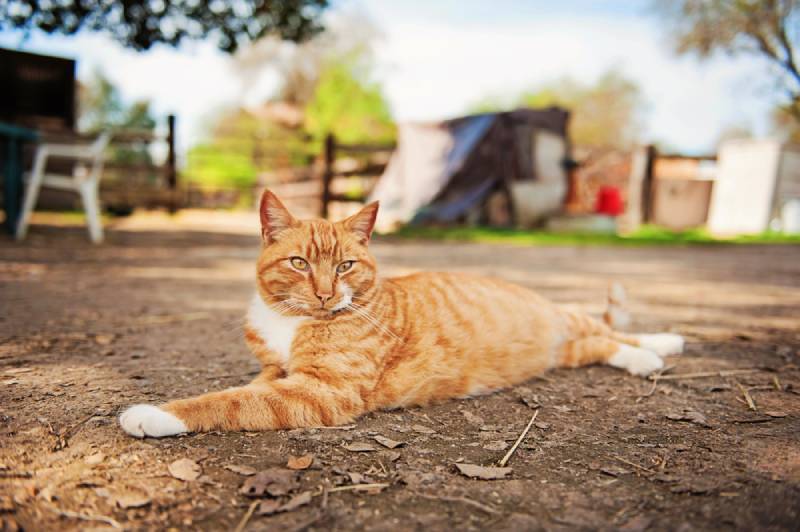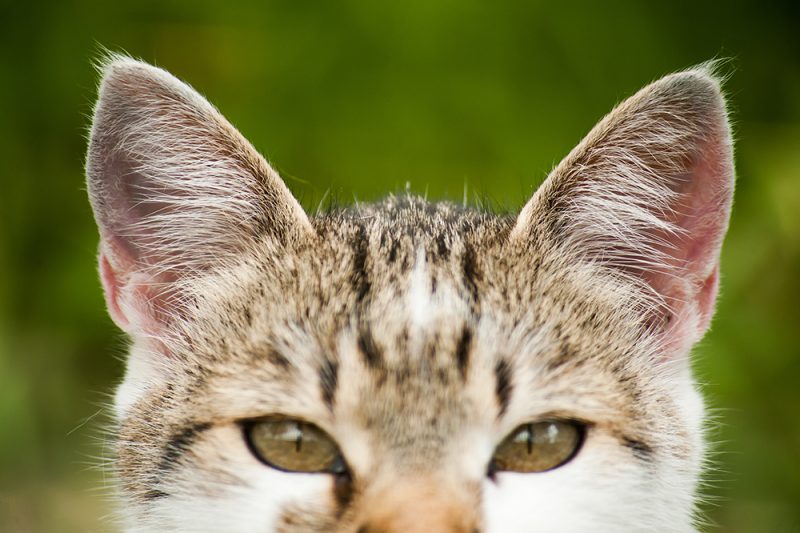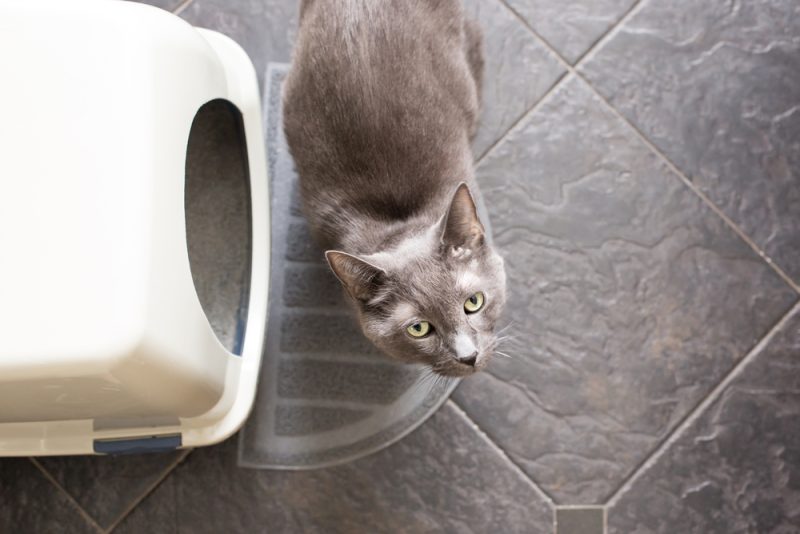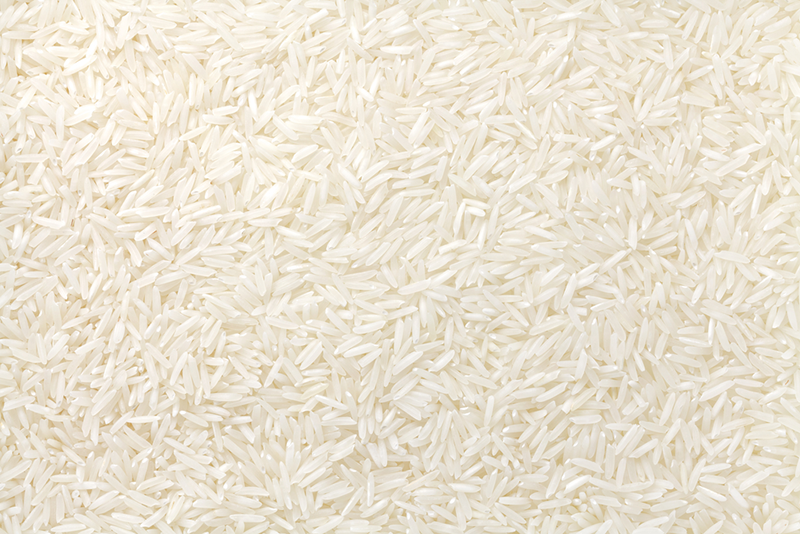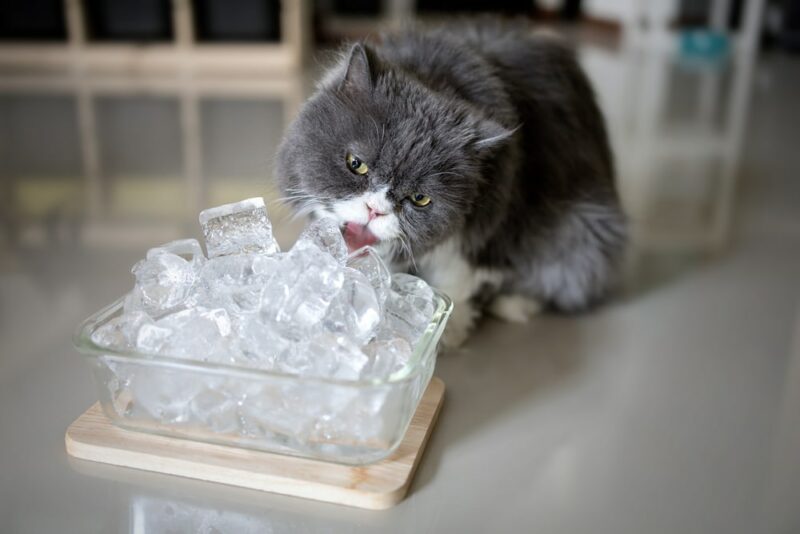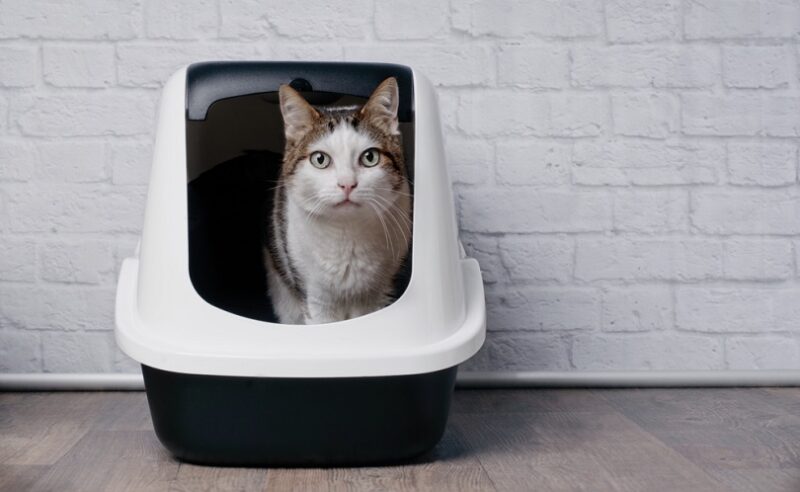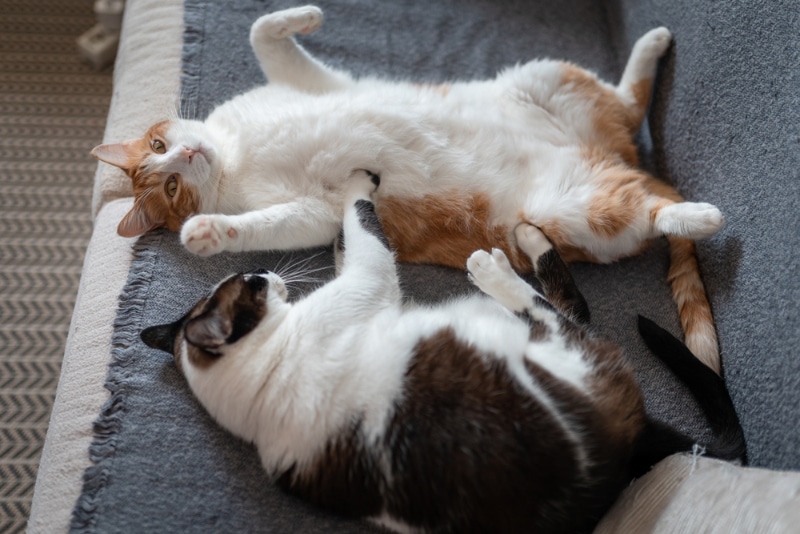The Devon Rex cat is famous for their unique looks, marked by a triangular face, huge ears, and large eyes. But even more interesting than their appearance is their lovable personality. They are intelligent and playful and love being around people.
This breed emerged in the 1950s and has slowly become one of the most sought-after cats today. They are a rare breed, making owning one quite desirable for some cat lovers. But how long will this cat keep you company? A Devon Rex cat can generally live approximately 10–15 years.
Read on for more information on the Devon Rex’s lifespan and essential tips on helping to ensure that your cat lives longer.

What’s the Average Lifespan of a Devon Rex Cat?
The average lifespan of a Devon Rex cat is 10 to 15 years. But, depending on genetics and underlying health issues and lifestyle, some cats can live longer with proper care, a healthy diet, and adequate exercise.
Interestingly, Devon Rex cats never lose their kitten-like energy, even in their senior years. Their natural inclination to exercise helps keep health issues at bay, and many live up to their mid-teens.
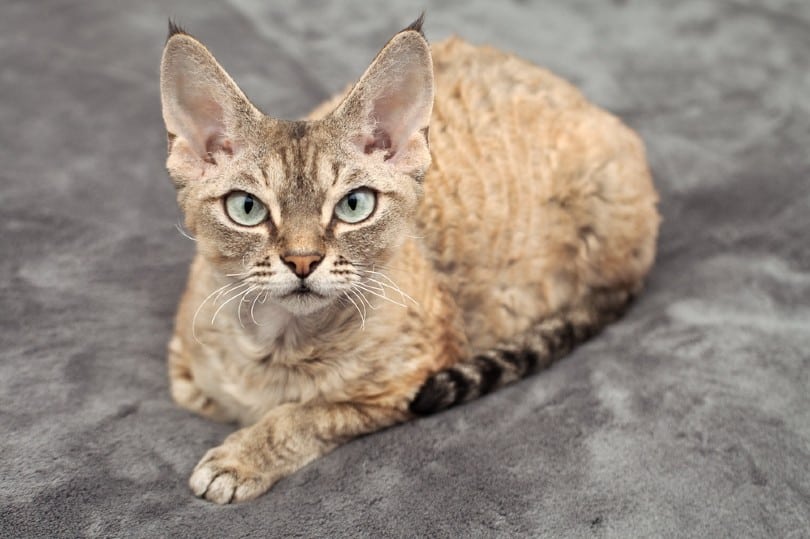
 The 8 Factors Affecting the Lifespan of the Devon Rex
The 8 Factors Affecting the Lifespan of the Devon Rex
A Devon Rex cat can live longer than their average lifespan. It’s not all down to luck, though. You can ensure your feline friend lives well past their expected age with proper care.
How long your feline lives will depend on various factors, including nutrition, breed history, and sex. We examine these in detail here.
1. Nutrition
Proper nutrition is essential since it impacts the health of your cat. A healthy balanced diet will provide adequate energy and prevent nutritional-related illnesses.
A Devon Rex cat’s diet should consist of animal-based proteins and moderate levels of fats, low levels of carbohydrates, with required vitamins, and minerals. It should also include adequate calorie levels since the cat is active and engages in a lot of play and exercise.
Avoid feeding human food to the cat despite their persistent begging. Instead, go for high-quality cat food with a label from the Association of American Feed Control Officials.1
If you keep your cat indoors, watch how much you feed them to avoid excessive weight gain. Obesity can lead to various health complications that could cut your feline friend’s life short. You can always consult a vet about the caloric requirements of your cat to make sure you feed them the right amount of food.
Need veterinary advice but can't get to the clinic? Catster recommends PangoVet, our online veterinary service. Talk to a vet online and get the answers and advice you need for your cat without having to leave your living room — all at an affordable price!

2. Environment and Conditions
A Devon Rex cat’s coat is lightweight, sparse, and thin. As a result, continuous sun exposure can lead to sunburns. Chronic sun exposure can also lead to skin cancer.
3. Living Quarters
A Devon Rex cat will be happy to stay indoors. However, your house needs adequate space to accommodate their natural inclination toward physical activity. They love exercise and play and require room to roam around.
Playing with your cat daily can give them the mental and physical stimulation necessary to stay healthy. It can also allow you to bond. But if you don’t have time, ensure your house has a variety of toys and environmental enrichment to keep the kitty active and stimulated.
Naturally, a Devon Rex cat will enjoy being outdoors. However, it would be best to keep a close eye on them since they can get into all sorts of trouble that could endanger their lives. An outdoor cat enclosure can help keep them safe.
4. Size
Although no sufficient scientific evidence supports the claim, smaller cats tend to live longer than their larger counterparts. However, the difference is not as noticeable as with dogs.
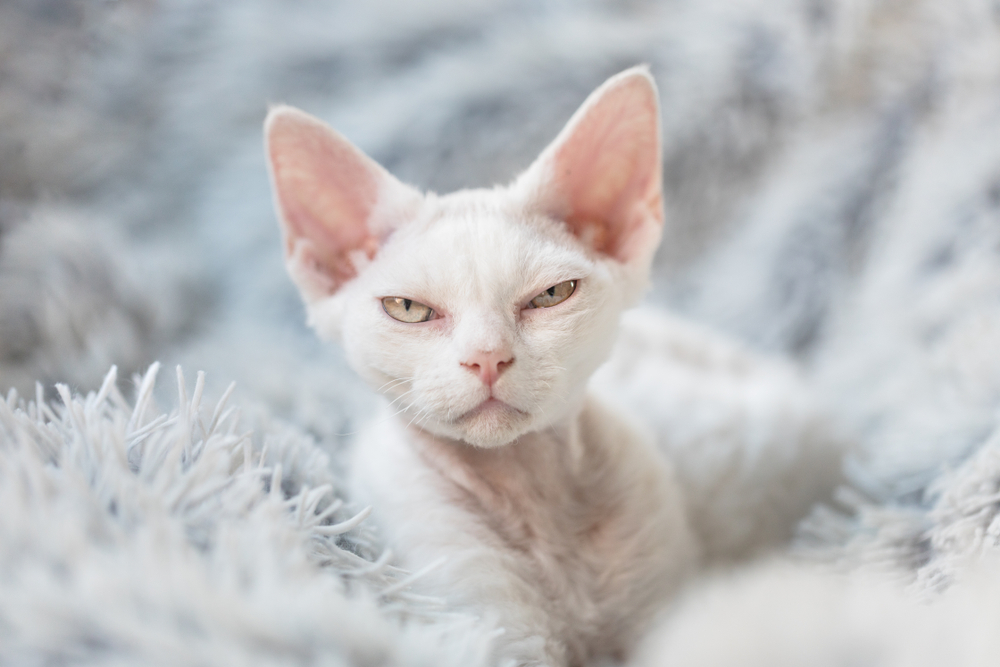
5. Sex
Like humans, female cats may live somewhat longer than their male counterparts. On average, a Devon Rex female cat may outlive a male by 1 or 2 years.
Neutering or spaying could also increase your cat’s lifespan. According to the American Veterinary Medical Association, a spayed female cat can live 39% longer, and a neutered male cat can live 62% longer.2
6. Genes
Genetics also plays a role in a Devon Rex cat’s lifespan. For instance, a life-threatening condition can be passed down from a parent to their offspring.
Devon Rex myopathy is a hereditary health condition that affects the breed. The cat is also genetically predisposed to hypertrophic cardiomyopathy and patellar luxation.
7. Breeding History
Don’t buy a kitten from any breeder. Only reputable ones will give you the vital information you need to learn about the cat’s breeding history.
First, the breeder should provide a health certificate indicating that the kitten and their parents have undergone all the necessary health checks and are free from various health conditions. Also, ask to see the kitten’s vaccination records.
Getting the parent’s and grandparents’ medical information is also essential since it will give you an insight into how long your cat may live. So, don’t forget to ask for the family tree. Ensure you find out how long the parents lived and the cause of their deaths.
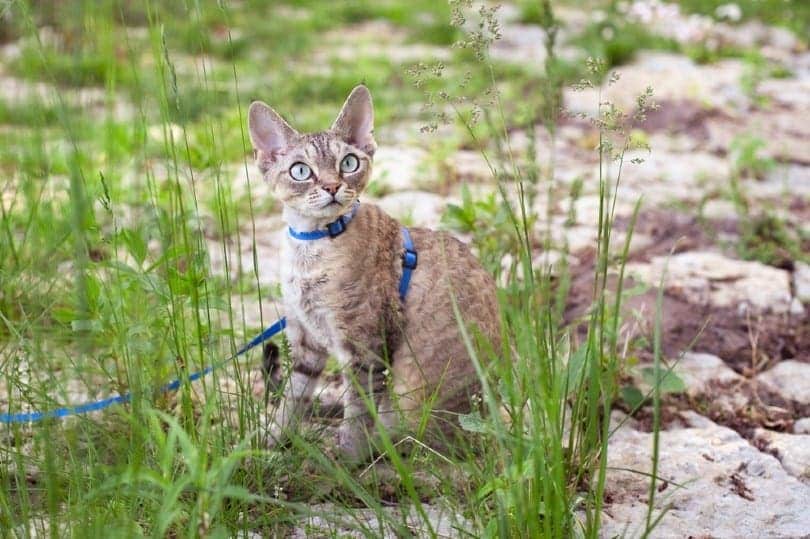
8. Healthcare
A Devon Rex cat can still get sick no matter how healthy they are as a kitten. Therefore, monitoring their health is vital in ensuring they live long.
Apart from providing a healthy balanced diet, regular vet visits are recommended. A veterinarian can diagnose and treat health complications early before they become life-threatening.
Generally, Devon Rex is a healthy breed. Still, there are several common ailments that you should watch out for.
- Patella Luxation: Devon Rex cats are genetically predisposed to patella luxation, a condition characterized by kneecap dislocation. It can lead to lameness or unusual skipping.
- Hypertrophic Cardiomyopathy: The Devon Rex breed is also genetically predisposed to hypertrophic cardiomyopathy, the most common heart disease in cats. The condition causes the thickening of the walls on the left side of the heart, leading to heart arrhythmia, blood clots, and congestive heart failure.
- Devon Rex Myopathy: Devon Rex myopathy is a hereditary disease that causes generalized muscle weakness. The signs appear when the kitten is 3 weeks to 6 months old.

The 6 Life Stages of a Devon Rex Cat
A Devon Rex cat goes through six life stages: kitten, junior, adult, mature, senior and super senior.
1. Kitten
- 0–6 months
Devon Rex kittens are tiny, with big ears. They are super energetic and playful but will spend a lot of time sleeping.
2. Junior
- 7 months – 2 years
Devon Rex junior cats are at their most active and playful at this stage. They will have finished their vaccination courses by now followed by neutering or spaying depending on the circumstances.
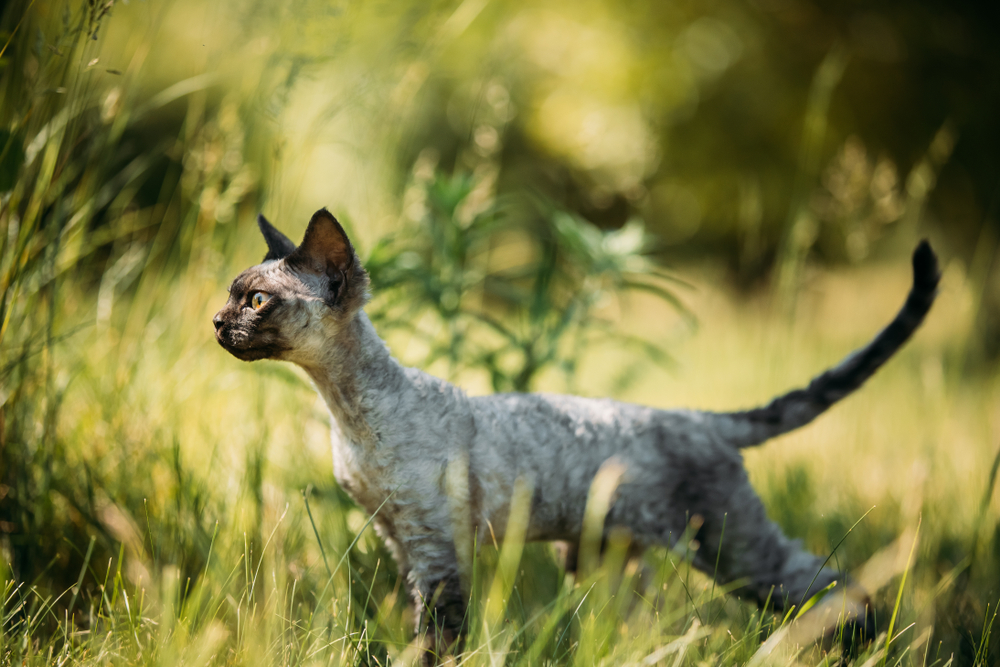
3. Adult
- 3-6 years
Although they sleep less than kittens, adult Rexes never lose the kitten’s playful disposition.
4. Mature
- 7-10 years
As they reach 10 years of age, it’s important to keep up with regular 6 monthly veterinary checks, in order to pick up on any health issues early on.
5. Senior
- 11-14 years
A Devon Rex cat becomes a senior from age 11 onward. They might start slowing down at this stage, but their purr is still as boisterous.
6. Super Senior
- 15 years +
At this age, you will notice further slowing down and your Devon Rex may suffer with certain health issues common at this age. Continue with regular vet checks and make sure your kitty has a good quality of life.
 How to Tell Your Devon Rex Cat’s Age
How to Tell Your Devon Rex Cat’s Age
It could be challenging to tell your cat’s age if you got them from a shelter or rescue center. But you can get a general idea by observing their size, teeth, and eyes, as well as behavior and energy levels.
It is better to visit a vet for a thorough examination if you want a more accurate age assessment. However, it is essential to note that the vet will still be making an educated guess.
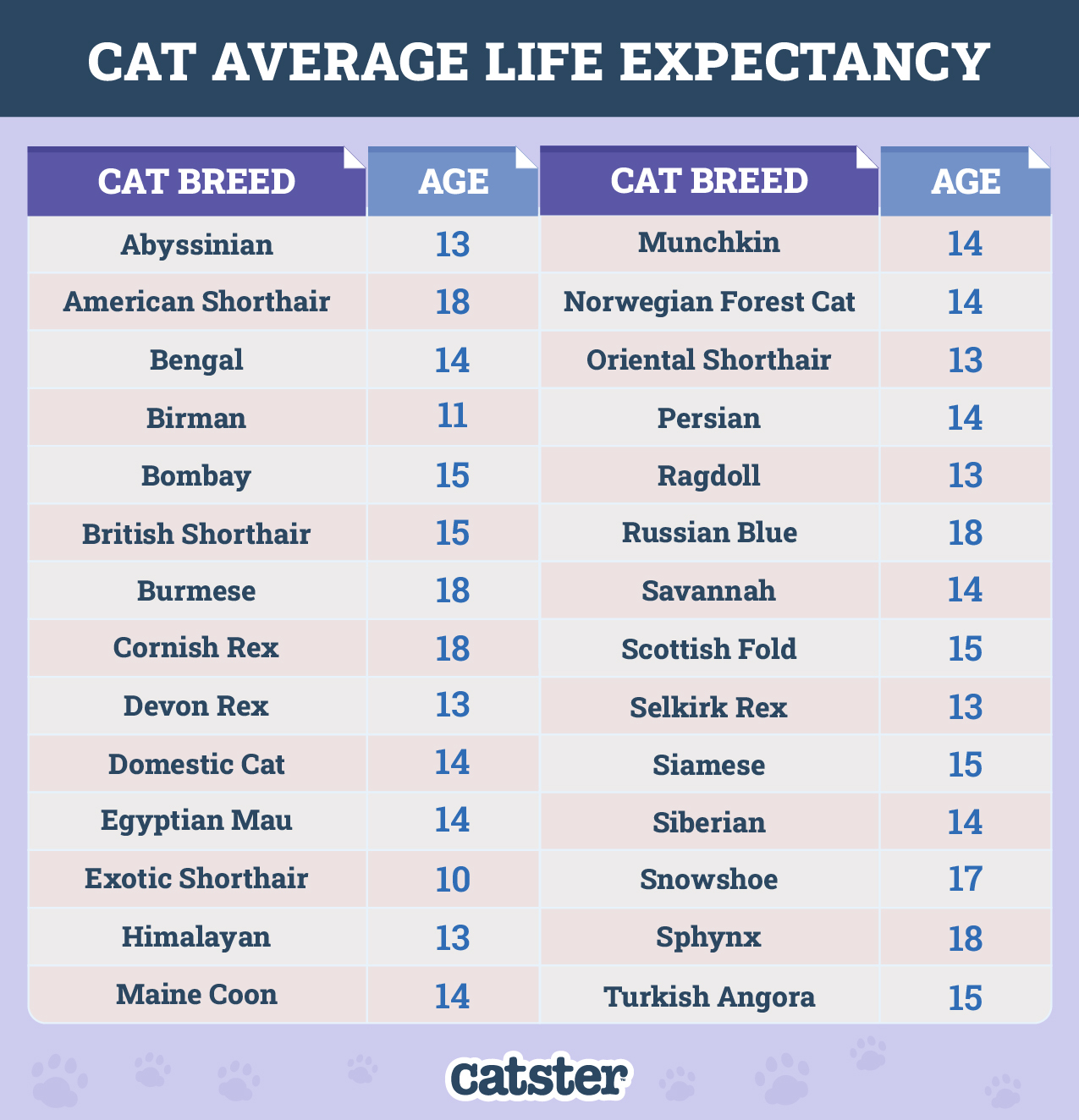

Conclusion
The Devon Rex is generally a healthy, energetic breed. They can live for 10 to 15 years if they don’t suffer from any chronic or life-threatening health issues. You can ensure your Devon Rex cat lives longer by providing adequate care. That means feeding them a balanced diet, providing the space and environment for exercise, and visiting the vet regularly for routine check-ups.
Featured Image Credit: Oleksandr Volchanskyi, Shutterstock
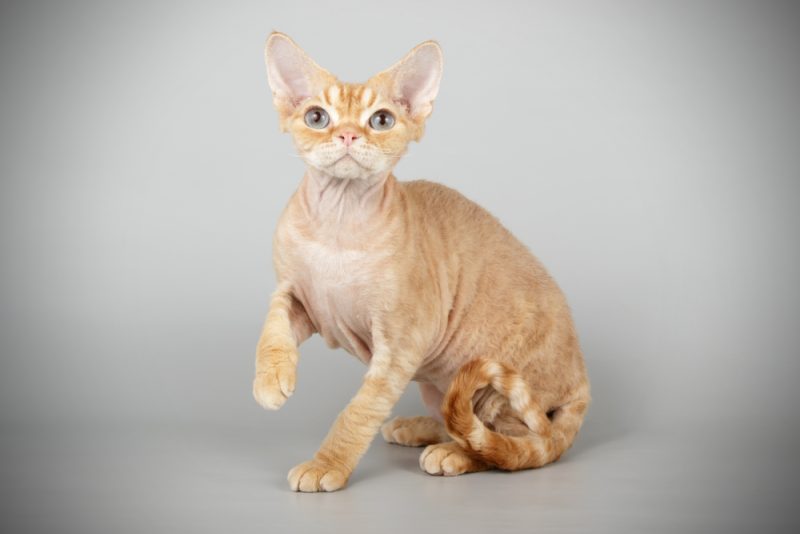
 How to Tell Your Devon Rex Cat’s Age
How to Tell Your Devon Rex Cat’s Age

